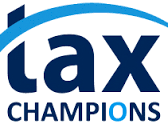Firstly, if the bank notifies you of an impending levy, immediately determine which entity is responsible for it.
If you determine that the IRS has put the levy on your account, examine your records and verify the debt.
The IRS may lift the levy if they find that it’s an error. Errors may be more common than you realize, so don't skip this step.
They may also lift the tax levy if they find that it creates a significant financial hardship on the taxpayer or another agreement for payment is made.
Contact a qualified tax professional to represent your best interest in a negotiation with the IRS to remove a levy.
The IRS strives to obtain the full amount of the back-tax debt balance from the taxpayer.
Your tax representative’s savvy understanding of tax law and IRS procedures allows him or her to establish an affordable payment agreement for the lowest possible amount.

